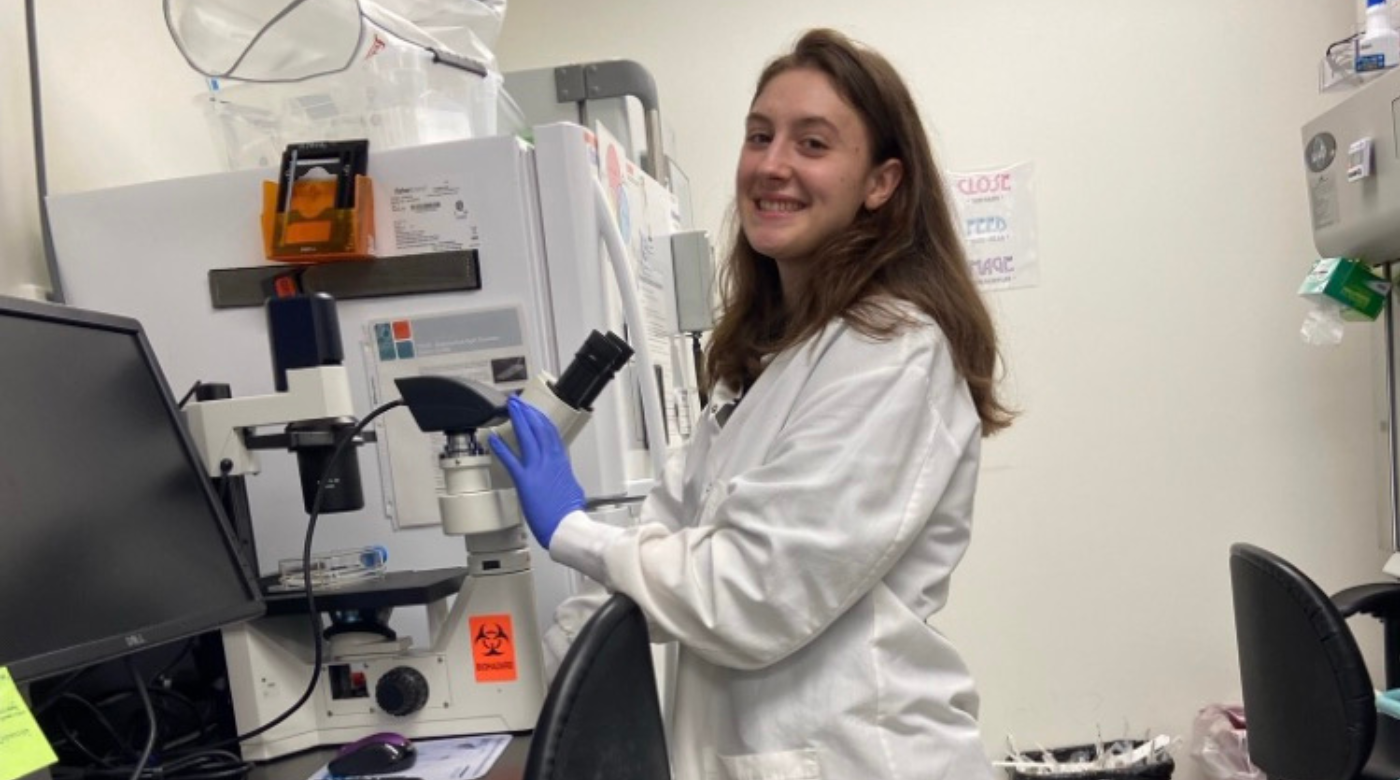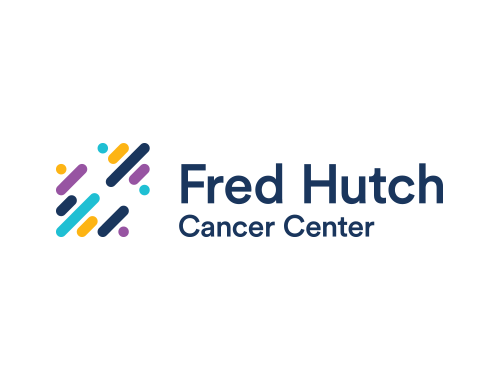Margaret Murdoch ’24: Contributing to a cure at Fred Hutch Cancer Center

Image: Margaret Murdoch ’24 spent the summer at Fred Hutchinson Cancer Center researching acute myeloid leukemia cells. (All photos provided by Murdoch.)
By Ava Edmonds
Marketing and Communications
Margaret Murdoch ’24, a biology and religious studies major with a minor in gender and sexuality studies, spent their summer in Seattle alongside some of the nation’s best scientists. Experimenting, analyzing, and observing at Fred Hutch Cancer Center, they were able to assist in making scientific breakthroughs for healthier lives in every community. For Murdoch, the Fred Hutch Cancer Center Internship provided a once-in-a-lifetime opportunity to gain lab experience. Read more about their experience below!

How did your internship come to be at Fred Hutch?
MM: I spent the summer working at Fred Hutch through a Lab position offered to PLU students funded by the John F. Gilbertson Foundation. This position at Fred Hutch is provided to two PLU students each summer. After hearing about the sponsored Fred Hutch internship, I filled out the application, interviewed with Dr. Termini, and was offered the full-time 10-week-long position. Dr. Termini runs the Termini Lab at Fred Hutch Cancer Center.
Please walk us through a typical day at your internship and how your role has evolved.
MM: Every morning, I would wake up around 7 a.m., grab my bike, and then scurry out of the Seattle dorm I was living in. Then, I would bike through the congested streets of Seattle to the Fred Hutch Cancer Center. Upon arriving, I would usually say hi to my lab mates, and experiments. Each day, I would either write up a new lab protocol, attempt to replicate a previous experiment’s results, or analyze data. I usually stayed until around 7 p.m., then collected my things, and biked home.
When I started, I did one day of online lab safety training and then moved into shadowing for a few days. By the end of my first week, I had been given multiple lines of MOLM-13 acute myeloid leukemia cells. During my second week, I was preparing and running an assay to measure senescence in the cells. By my third week, I was participating in the lab’s multi-panel mouse experiment and expanding my cell cycling experiments. By the end of my time there, I had participated in multiple large-scale experiments, developed many assays for investigating cell cycles, and realized my love for lab work.
What was one of your favorite projects you worked on during your time at the lab?
MM: It is very difficult to choose just one project that stood out to me, as they were all incredibly important and informative to my scientific understanding and experience in the lab. However, some of the more important projects were multi-panel mouse experiments. These were usually the culmination of long-term mouse studies where the mice would be dissected and their blood spl marrow processed, stained, and measured. The expansiveness of these experiments, with their many moving parts, made my contributions to them particularly exciting. It included running my processed samples through the flow cytometry machines because the data I collected were the culmination of all our work.


What did you gain from this experience and how has it affected your future career goals?
MM: This experience provided me with an understanding of my potential and the things that may be standing in the way of my success. Focusing almost exclusively on this work that I am so passionate about is a dream come true and further solidified my career goal of becoming a full-time scientist. It has also made lab courses look far more digestible than I had previously found them to be. Whether it be in my academic studies or my future career plans, I hope to carry with me the organization, work ethic, and joy for science that I found working at Fred Hutch.

Could you reflect on any networking opportunities that arose during your internship? What connections did you make and how impactful were they?
MM: I received excellent mentorship from my PI (principal investigator), Dr. Termini. The guidance I received from her and those mentoring me has been invaluable. My PI is sending me to a professional conference in December, which will further bolster my connections and opportunities in this field. She has also said that I will always have a place in her lab if I want it. I am immensely grateful for the guidance and help she has given me.
The scientists working in the lab were also incredible. They made sure that I prioritized my work-life balance and encouraged me to do things in ways that made the most sense to me. Overall, being surrounded by intelligent and kind people who were always willing to aid me with any questions or concerns I had has set the bar very high for all future labs I will work in. Through the support and interactions I had during my time at Fred Hutch, I know the connections I made will serve me for the rest of my career.
If you were to offer advice to other students considering internships, what valuable insights would you share with them based on your experience?
MM: The most challenging part of this internship was getting to Seattle. It isn’t easy to find housing, so be aware of that and start searching early if your internship does not provide any accommodations. Other than that, internships like this usually give you what you put into them. Also, make sure you take care of yourself! I found it difficult to pull myself away from my work from time to time since I enjoyed it so much, but taking the time to care for myself outside of work better ensured my ability to perform well in the long run.



